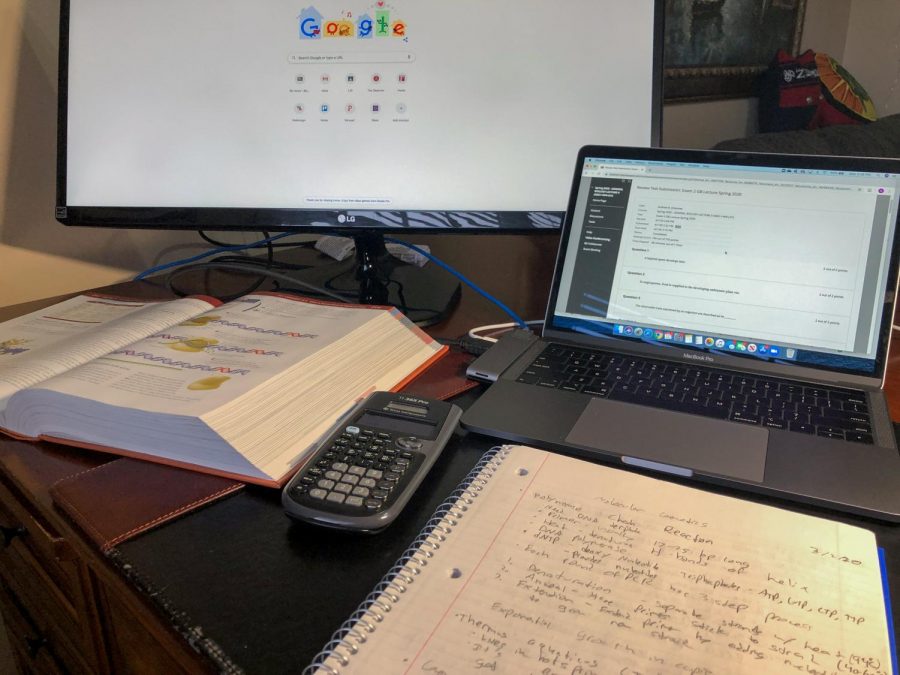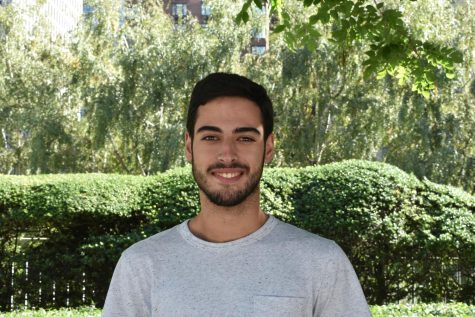Fordham Opts Out of Using Exam Monitoring Software
Fordham is encouraging professors to develop online final exams that would enable students to demonstrate their learning goals, even with course materials open in front of them.
April 22, 2020
Universities are faced with making yet another difficult decision on how to conduct final examinations online after suspending face-to-face classes due to the coronavirus outbreak.
Fordham University’s “Coronavirus Faculty FAQs” page was updated on April 20 with a section titled “Completing the Semester.” In the post, instructors are encouraged to “think creatively about types of assessments that would enable students to demonstrate their achievement of learning goals,” since traditional closed-book, multiple-choice exams may not work in the current learning environment.
Professors have also been told to consult their department chairs before deciding to abandon administering a final exam altogether. If an exam is still allotted to happen online in a timed format, it will take place at the same scheduled time, with exceptions for individual students in different time zones.
Dean Laura Auricchio said these ideas have been discussed over the past few weeks in town halls, at chair meetings and with individual faculty members.
According to Anne Fernald, special adviser to the provost for faculty development, they are working out the technical aspects of conducting exams online while also maintaining “cura personalis,” since students may be grieving, had their lives disrupted, or left books and notes in their dorm room.
“We are not operating out of a place of suspicion, but of compassion,” Fernald said. “The outbreak has been traumatic; we are going to assess you, but are conscientious of its impact.”
Fordham looked into various software and proctoring possibilities, with options for monitoring students through videoconferencing live or with the aid of artificial intelligence.
Software being utilized by other universities, such as Proctorio — which monitors students’ “suspicion levels” by using facial recognition and browser lockdown — was deemed “prohibitively expensive” and “overly-complicated” to be implemented this semester. However, Fordham will “explore alternative options in coming years.”
Instead, conventional exams will most likely be accessible through Blackboard, the university’s supported learning management system for undergraduates, although it is not required.
Steven D’Agustino, director of online learning, emphasized the importance of taking each student’s access to technology, reliable internet and a quiet study space into account when professors are devising plans for final examinations.
D’Agustino’s role is to support instructors in the development of online learning and to use technology more effectively. “The best way forward is for faculty to reconnect to who we are as a community and what we are trying to measure,” D’Agustino said.
Nationwide, educators are having conversations about academic integrity, as Advanced Placement exams move online into a briefer format, lasting only 45 minutes; the SAT and ACT may follow suit later this year.
“The overwhelming majority of Fordham students are honest,” Fernald said. “It is possible for students to synthesize information open-note instead of completing a multiple-choice exam.” If a multiple-choice exam is necessary, Fernald said randomizing the order can help alleviate worries about academic dishonesty.
Both Fernald and D’Agustino said students should be given more time than normal so that students with unstable internet connectivity are accommodated.
Also, according to the Director of the Office of Disability Services Mary Byrnes, students who are supposed to receive testing modifications should reach out to the Office of Disability Services, as well as inform their professors.
“All other supports are in place as well,” D’Agustino said. “You are not on your own. We are still committed to your growth and development.”














